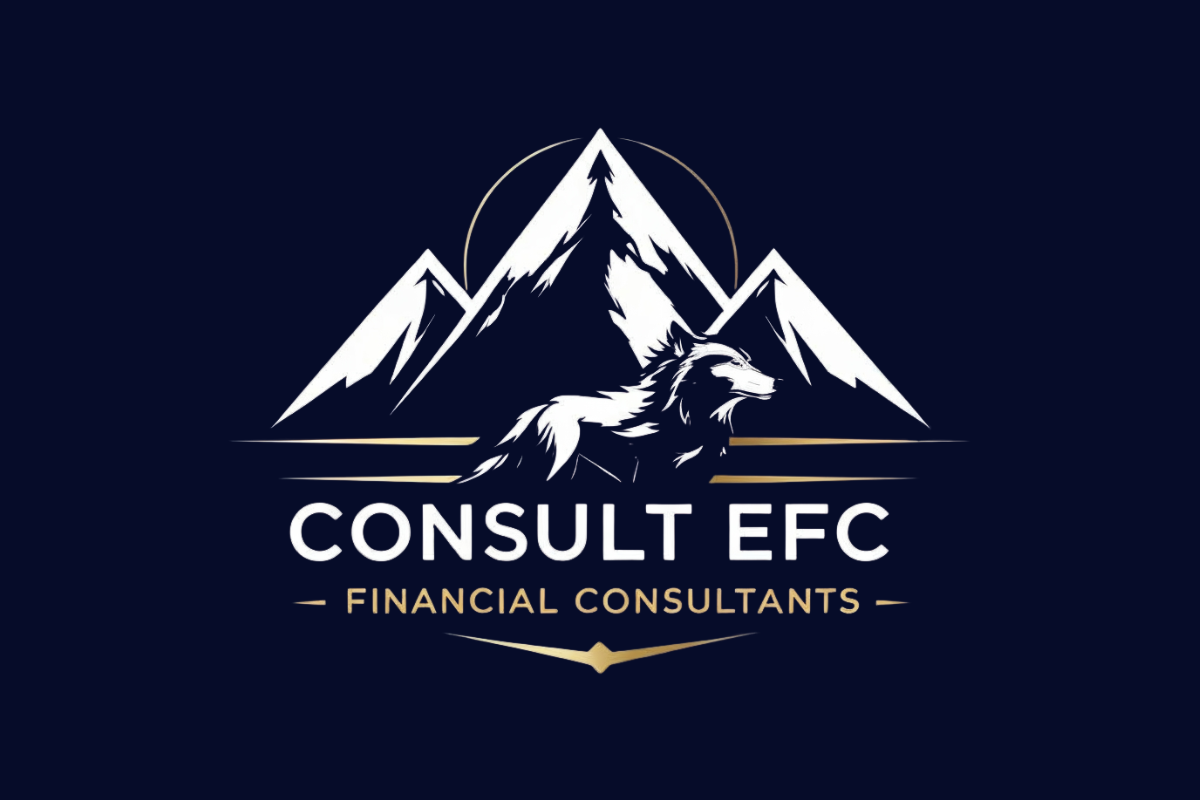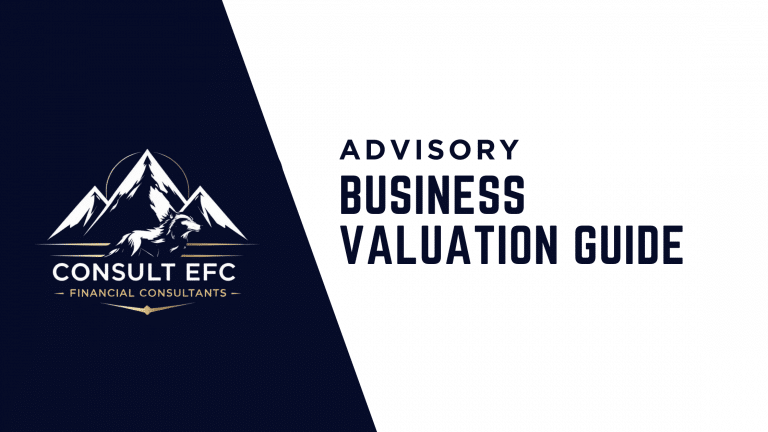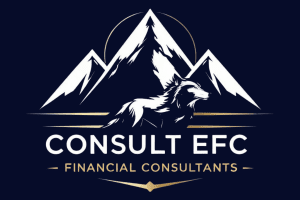You may have been told you need a business valuation. A solicitor, accountant, lender, or adviser has mentioned it, and now you are wondering what it really means and what happens next.
In simple terms, a business valuation is a reasoned view of what your business is worth in money at a point in time. It matters for very real events, such as a sale, divorce settlement, shareholder dispute, tax planning, investment round, succession, or funding application. A sound valuation protects you from selling too cheaply, overpaying for someone else’s shares, or making poor legal or tax decisions.
At Consult EFC, we provide independent, professional business valuations that are clear, practical, and written in plain language. This article walks through what a valuation is, what affects value, how the process works with Consult EFC so you can move forward with confidence and calm, not guesswork.
What is business valuation and why does it matter for you?
A business valuation is the process of working out what a business is worth, in pounds, at a particular date. It is not guesswork, and it is not a single magic number written on a scrap of paper.
Value is an opinion, but it is an opinion based on evidence, analysis, and experience. A good valuation sets out how the number has been reached and can stand up to challenge from buyers, HMRC, the courts, other shareholders, or their advisers.
In real life, owners come to Consult EFC for a business valuation for many reasons, including:
- Planning to sell a business, either now or in a few years
- Buying a business, or buying out a partner or shareholder
- Divorce or family separation, where a business is part of the assets
- Shareholder or partnership disputes and unfair prejudice claims
- Tax planning and agreeing values with HMRC
- Setting up or reviewing employee share schemes
- Banking or funding needs, such as loan security or covenant tests
- Succession and retirement planning, including handing over to family or management
In each case, the valuation forms a key part of important decisions. For a sale or purchase, it helps you judge offers and set expectations. In a divorce or dispute, it gives a fair starting point for talks or court proceedings. For tax, it supports figures put to HMRC and helps avoid future challenges.
You do not need to know technical terms or formulas. Part of my role is to guide you through, explain the logic in everyday language, and give you a clear, evidence-based view of value that you can rely on.
Key situations when you need a professional business valuation
Some events almost always call for a formal valuation. The main ones we see are:
1. Sale of the whole business
If you are selling, you want to know what the business is reasonably worth before you start. A valuation gives you a fair range for an asking price, helps you assess offers, and supports your negotiations.
2. Sale or purchase of shares in a private company
When a shareholder leaves, joins, or changes their stake, value becomes central. A business valuation helps set a fair price for the shares and can avoid long, bitter arguments.
3. Divorce or separation
If you or your partner own a business, its value usually forms part of the marital assets. A clear valuation gives solicitors and the court a solid figure to work with, and this often reduces conflict.
4. Shareholder or partnership disputes and exits
In disputes, both sides tend to have strong views on value. An independent report from Consult EFC can support court claims, mediation, or settlement talks, so discussions focus on facts rather than emotion.
5. Tax events and HMRC agreements
Gifting shares, setting up an employee share scheme, or dealing with probate often needs a value that HMRC will accept. A well argued valuation reduces the risk of a challenge and supports your tax planning.
6. Management buy-outs and buy-ins
When management buys the business, or an external manager buys into it, everyone needs confidence that the price is fair. A professional valuation helps both existing owners and managers see the numbers clearly.
7. Financial planning before retirement or sale
Many owners want to know, in advance, what their business is likely to be worth in a few years. A valuation, combined with practical comments, can highlight areas to improve before you sell or step back.
Common myths about what makes a business valuable
Owners often have strong views on value, some of which are shaped by myths. A few of the most common are:
“Value is just a multiple of profit.”
You may hear talk of “5 times profit” in the pub or on forums. In reality, the right multiple depends on risk, growth, sector, and many other factors. Two firms with the same profit can have very different values.
“My business is worth what I have put into it.”
Time, effort, and personal sacrifice do not automatically translate into market value. Buyers and courts look at future earnings and risk, not how hard you have worked or how much money you once invested.
“Turnover is more important than profit.”
High sales with low or volatile profit are not attractive. It is the profit you can reasonably expect to keep, and the cash that flows from it, that drives value.
“Online calculators can give a reliable answer.”
Simple online tools may give a rough estimate at best. They cannot read your accounts, adjust for one-off items, assess contracts, or judge risk. For real decisions, such as a sale, divorce, or HMRC submission, they are not enough.
Proper business valuation looks at risk, future earnings, cash flow, and the strength of the business model, as well as past numbers. It blends analysis with judgement. This is why an independent expert view makes such a difference when the stakes are high.
What drives the value of your business in practice?
When we carry out a business valuation, we look beyond the headline profit in the accounts. Two firms can show the same profit, yet one might be worth double the other. The reasons sit in the quality, reliability, and risk of those profits.
Key things that drive value in practice include:
- The level and stability of profits and cash flow
- Growth prospects and the strength of your market
- The spread and loyalty of your customers
- Long-term contracts and recurring income
- The skills and depth of your management and staff
- How dependent the business is on you personally
- Systems, processes, and how well the business is organised
- Sector risk and wider economic conditions
- Assets and liabilities on the balance sheet
A professional valuation with Consult EFC takes these factors, and others, into account when choosing methods and setting assumptions. It is not just about one number from last year’s accounts.
Financial performance, profit quality, and cash flow
Historic accounts are the starting point, not the end point. we usually look at three to five years of results if available, then adjust them to reflect the business on a normal, ongoing basis.
This might involve:
- Removing one-off costs or income that will not recur
- Adjusting for owner pay that is above or below a market salary
- Correcting for missing or unusual costs
- Considering whether recent changes are permanent or temporary
From this, we work out maintainable earnings, which is a realistic, ongoing profit level that a buyer could expect if they took over the business in its current form.
Cash flow is just as important. A business that shows profit but ties up cash in stock or unpaid invoices is less attractive. we look at free cash flow, which is the cash the business can generate after normal costs and investment.
Stronger, steadier profits and cash that reliably comes in usually support a higher valuation. At Consult EFC, we review statutory accounts, management reports, and forecasts. we explain any adjustments clearly, so you can see how we get from the raw accounts to the earnings figure used in the valuation.
Risk, sector outlook, and market position
Risk has a direct effect on value. Higher risk usually means a lower value. Lower risk supports a higher value. The question is how risky your future profits look to a buyer or to the market.
Key risk factors include:
- How stable your sector is, or whether it faces disruption
- The strength and number of competitors
- Barriers to entry, such as regulation, know-how, or capital needed
- Exposure to economic cycles or consumer confidence
- Your market position and how hard it would be to replace you
For example, a supplier that relies on one product in a declining market is riskier than a firm with a range of services in a stable or growing niche. Risk also shows up at customer level. A business that relies on one customer for 60% of sales is more exposed than one with a broad base of customers.
When valuing a business, we look at wider market data, sector outlook, and, where available, evidence from recent deals in similar areas. I then consider the specific niche your business serves, its strengths, and its weaknesses. This feeds into the choice of earnings multiple or discount rate, which in turn affects the valuation.
Customer base, contracts, and recurring income
A broad, loyal customer base is valuable. Long-term contracts and recurring revenue streams are even better.
Buyers and investors like:
- Customers who buy repeatedly and stay for years
- Written contracts that lock in income for a period
- Subscription or service plan income that renews automatically
These features can support a higher multiple in a business valuation, because they reduce risk and make future cash flows more predictable.
Customer concentration is an important point. If one customer accounts for 40% of your sales and they leave, the impact is severe. That risk tends to pull values down. If your top ten customers each account for 5% of sales, the business is more resilient to change.
If you are thinking ahead to a sale in a few years, one useful step is to reduce reliance on a small number of large customers and build more recurring income where the business model allows.
People, systems, and how dependent the business is on you
A business that runs smoothly without the owner present is usually worth more. A buyer wants to know that profits will continue after you have stepped back, not fall away once you are out of the door.
Key value drivers here include:
- The strength and depth of your management team
- How many key staff hold important relationships or knowledge
- Whether there are documented systems and processes
- How decisions are made, and how performance is tracked
If you are the main person for sales, operations, and relationships, the business is heavily dependent on you. That raises risk and can reduce value. Buyers will worry about what happens when you leave.
On the other hand, if you have a trained team, clear processes, and systems that support consistent delivery, the business feels more like an asset and less like a job. This usually supports a higher valuation. Part of my work is to point out where dependency on the owner is affecting value and how that might change over time.
How a professional business valuation works step by step
Many owners feel uneasy when they first hear they need a business valuation. The process is more straightforward than it might sound. Our aim at Consult EFC is to keep it clear, organised, and as light on your time as possible, while still doing a thorough job.
A typical valuation engagement follows these steps:
- Initial discussion and scope
We discuss why you need the valuation, who will use it, and any deadlines or legal requirements. This sets the scope, for example, whether the report must meet court or HMRC standards. - Information request
We send a practical list of information needed, tailored to your situation. - Review and questions
We review the documents, identify key issues, and come back with questions. This may cover unusual transactions, contracts, or trends in your numbers. - Financial analysis and adjustments
We analyse your accounts and management information, make normalising adjustments, and build a picture of maintainable earnings and cash flow. - Assessment of risk and business drivers
We look at sector conditions, market position, customer base, contracts, staff, systems, and any other value drivers relevant to your business. - Select and apply valuation methods
Based on the nature and stage of your business, and the purpose of the valuation, we choose suitable methods and apply them. This may involve cross-checks. - Draft valuation report
We prepare a draft report, setting out the background, information reviewed, methods used, assumptions, and conclusion on value or value range. - Discussion and finalisation
We talk through the draft. We answer your questions, clarify points, and, where needed, refine the report. The final report is then issued for use by you and your advisers.
Throughout, our focus is on clarity and independence. The valuation must be robust enough to stand in front of another expert, HMRC, or a judge if needed, yet still be written in a way that you find clear and useful.
Information your valuer needs and how to prepare
You do not need perfect records, but some core documents help build a fair picture. For most assignments, I will ask for:
- Statutory accounts for the last 3 to 5 years
- Current year management accounts
- Budgets or forecasts, if available
- Details of key customer and supplier contracts
- Lease and property information
- Loan and finance agreements
- Shareholder structure and any recent share transactions
- Relevant legal documents, such as shareholders’ agreements, court orders, or HMRC correspondence
Each item helps answer a different question about value. For example, accounts show historic performance, forecasts show where you expect the business to go, contracts show how secure income is, and legal documents may affect how shares are valued.
If there are gaps, we work around them as far as possible, sometimes by using alternative information or making clear, reasoned assumptions. We guide you through what is needed and why, so the process feels manageable.
Main valuation methods, explained in plain English
Owners often hear snippets about valuation methods. The main approaches used in practice are:
1. Earnings-based methods
These are common for profitable trading businesses. They include:
- EBITDA multiple, which applies a multiple to earnings before interest, tax, depreciation, and amortisation
- Price/earnings ratio, which uses post-tax profit instead
A multiple is a number that reflects the risk and growth prospects of the business. For example, if maintainable EBITDA is £500,000 and the appropriate multiple is 5, the enterprise value would be £2.5 million before adjustments for cash and debt. A stable, low-risk business might support a higher multiple than a small, high-risk one.
2. Discounted cash flow (DCF)
DCF projects future cash flows and discounts them back to today at a rate that reflects risk. It is often used where there are strong forecasts or where cash flows vary over time. While the maths is more involved, in simple terms it asks, “What are the future cash flows worth in today’s money?”
3. Asset-based approaches
These focus on the value of the assets, less liabilities. They can be more relevant where the business is asset-heavy, such as property or investment companies, or where the trading business makes little or no profit.
In practice, we may use more than one method as a cross-check. Judgement is key in choosing methods, setting multiples, and interpreting the results. The goal is a fair and reasoned view that fits the business and the purpose of the valuation.
What you receive in a business valuation report
At the end of the process, you receive a written business valuation report. This usually includes:
- Background to the business and the purpose of the valuation
- The valuation date and basis of value used
- Information reviewed and any significant limitations
- Summary of historic financial performance
- Key adjustments to profits and cash flow
- Discussion of risk factors and value drivers
- Valuation methods applied and key assumptions
- A reasoned conclusion on value, or a range where appropriate
The main body is written in clear language. Detailed workings, such as calculations and supporting schedules, are usually in appendices. This structure keeps the report readable while still providing full detail for accountants, solicitors, HMRC, or the court if needed.
Clients commonly share the report with their professional advisers so everyone works from the same numbers. We are happy to discuss the findings with you and, where helpful, with your advisers, to make sure you understand what the valuation means and how to use it.
How to get the most from a business valuation with Consult EFC
A business valuation is more than just a number on a page. Used well, it becomes a tool for better decisions, stronger negotiation, and clearer planning.
You can use the findings to:
- Check whether an offer to buy or sell is reasonable
- Set expectations for a future sale or succession
- Identify weaknesses that reduce value and work on them
- Support legal or tax positions with evidence rather than estimates
When we prepare a valuation at Consult EFC, we do not just state a figure. We explain the drivers behind it. This helps you understand which parts of the business support value and which pull it down.
Using your valuation for deals, disputes, and planning
In a sale, a valuation gives you a fair view of worth before you go to market. It stops you from anchoring on a number you have heard elsewhere that may not fit your business. When offers arrive, you can compare them calmly to the valuation and decide whether they are in line, low, or unusually high.
In a buy-in or buy-out, the valuation sets a reference point for talks between existing owners and incoming or exiting parties. This often reduces tension, as both sides can see the reasoning.
In a divorce or dispute, the report provides independent evidence that solicitors, mediators, or the court can use. A clear, well argued valuation keeps discussions focused on facts instead of wishful thinking.
For tax planning, such as employee share schemes or gifting shares, a solid valuation underpins the figures put to HMRC and lowers the risk of future challenge.
In all these cases, sharing the valuation report with your accountant, solicitor, or financial planner means everyone works from the same, well supported numbers.
At Consult EFC, we specialise in independent, well reasoned business valuations with a personal, straightforward approach. The focus is on clarity, evidence, and support, so you can rely on the valuation for the decisions you need to make.
Conclusion
Business valuation is simply a structured way of answering a big question: “What is my business worth, in real money, at this point in time?” When done properly, it combines numbers, judgement, and real world context to reach a fair view that can stand up to challenge.
You have seen how value depends not just on profit, but on risk, cash flow, customers, people, and systems. You have also seen how a professional valuation process works, and how a clear report from Consult EFC can support deals, disputes, tax events, and long-term planning.
When large sums, family wealth, or legal claims are involved, a well founded business valuation is not a luxury. It is a key part of making sound decisions and protecting your position.
If you know you need a valuation, or expect to in the near future, now is a good time to talk. Get in touch with Consult EFC for an initial discussion, and put a clear, independent value on the business you have worked so hard to build.
Contact us at info@consultEFC.com or contact us.






